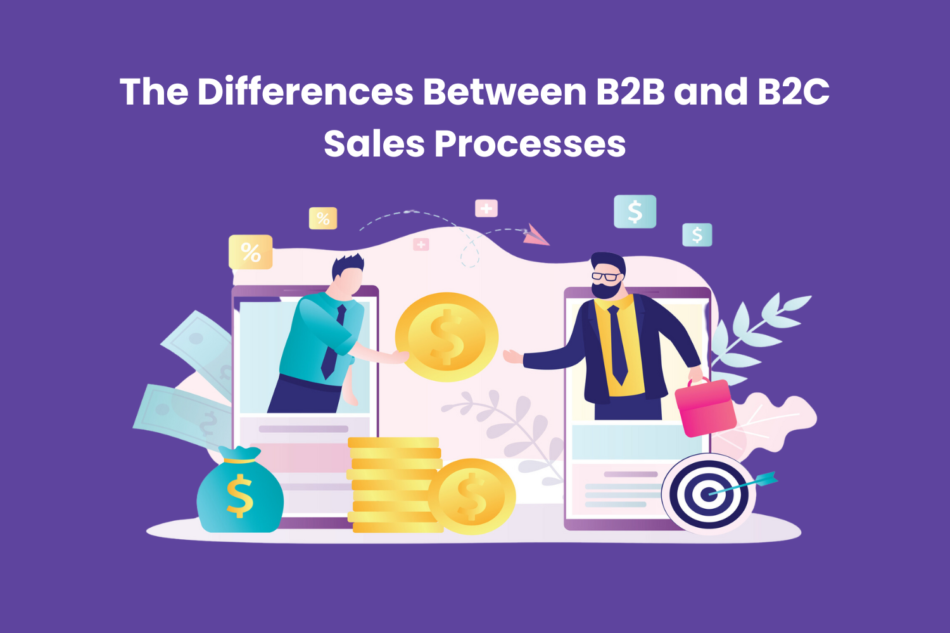A thorough grasp of the many procedures used in business-to-business (B2B) and business-to-consumer (B2C) transactions is essential for navigating the sales process. Sales Training acts as a compass for professionals navigating these two domains. What is B2B Sales, and how is it different from its counterpart focused on the consumer? In this blog, we’ll closely examine the differences, illuminating the distinctive dynamics that distinguish each and showing how sales training serves as the key to developing the competencies required for success.
Table of Contents
- Understanding the B2B Business Ecosystem
- Connecting with the Consumer using B2C
- Sales Training: The Common Thread
- Key Differences in Approach: B2B vs. B2C
- Navigating Decision-Making Processes
- Building Relationships vs. Creating Experiences
- Adapting to Market Trends
- Mastering the Art of Personalisation
- Nurturing Long-Term Relationships
- Conclusion
Understanding the B2B Business Ecosystem
B2B connections are the money. A thorough grasp of firms’ complex business ecosystems is necessary to foster and cultivate these relationships. A lot is on the line, with complex discussions and often drawn-out decision-making procedures. In this situation, training becomes essential for grasping the intricacies of the lengthier sales cycles and mastering product knowledge.
Connecting with the Consumer using B2C
Conversely, B2C sales might be thought of as a fast-moving symphony in which immediacy and emotion are given prominent roles. Here, the customer is the lifeblood, and sales training focuses on developing abilities that speak to the specific person. The key is making decisions quickly and having a solid grasp of consumer psychology since transactions are often one-time events rather than drawn-out processes.
Sales Training: The Common Thread
Whatever the nuances of business-to-business or business-to-consumer transactions, one thing that all great salespeople have in common is sales training. It goes beyond the binary, giving anyone the means to crack each procedure’s unique code. It serves as a link between comprehending the subtleties of a person’s preferences in B2C and the complexity of a company’s demands in B2B.
Key Differences in Approach: B2B vs. B2C
The way each approaches the pitch is one of the most noticeable differences. In business-to-business transactions, meeting the demands of a whole company often entails a careful presentation outlining long-term advantages and strategic alignment. Conversely, B2C is all about personal connection and immediacy. While B2B training places more emphasis on data-driven presentations, B2C training is more concerned with the craft of storytelling and forging an emotional connection.
Navigating Decision-Making Processes
Decision-making in business-to-business transactions involves several parties and approval levels, much as in a corporate chess game. Salespeople must become experts in navigating committees and boardrooms. B2C choices, on the other hand, are often made in the comfort of a living room and are motivated by convenience and impulse buys. People need to be able to transition between these different decision-making environments easily, which requires training.
Building Relationships vs. Creating Experiences
Although developing relationships is a component of both B2B and B2C, the focus is different. B2B partnerships are based on trust and dependability, which are developed over time by regular delivery and knowledge of the customer’s business environment. Creating delightful and unforgettable experiences is key to building loyalty in business-to-consumer (B2C) relationships. Sales training is a customised program that teaches professionals how to strike a balance between creating memorable experiences and establishing trust.
Adapting to Market Trends
Technology has completely changed how people sell to each other, both B2B and B2C. Digital literacy must be included in training, enabling professionals to use social media and internet platforms for B2C and data analytics for B2B. A flexible salesperson easily adjusts to changing market trends, seeing technology as a tool rather than a barrier.
Mastering the Art of Personalisation
Personalisation has shown to be a critical component of effective sales efforts in both B2B and B2C settings. Sales training explores the art of customising solutions to meet each person’s demands, whether the customer wants a customised experience or the organisation wants a smooth integration. Making an impact and turning transactions into long-lasting relationships requires understanding the nuances of customisation. This ability, developed via training, guarantees that every interaction is a custom solution skilfully designed rather than merely a sale.
Nurturing Long-Term Relationships
Building long-lasting connections in sales goes beyond a single sale. Sales training emphasises the significance of post-sale involvement in both B2B and B2C contexts. Professionals get training in sustaining relationships, providing continuous assistance, and anticipating changing requirements. This focus on developing relationships turns customers into committed partners. Through training, people discover that building and maintaining connections over time—rather than merely winning deals—is the actual test of success.
Conclusion
B2B and B2C are two separate threads in sales, and sales training is the expert weaver who skillfully blends the subtleties of each process. The modern sales professional flourishes when they have a cohesive understanding of the details of B2B sales and the emotional triggers of B2C. People may traverse the varied B2B and B2C landscapes with the correct training as their compass, learning the tactics and strategies that characterize these evolving domains. Consider enrolling in Business Skills Courses to enhance your sales proficiency, enabling you to navigate both B2B and B2C scenarios with finesse. Continuous learning through relevant courses provides the knowledge necessary for effective sales strategies, ensuring that you are well-prepared to succeed in the dynamic and competitive world of sales.

He is a librarian at Monash University. Besides handling several responsibilities of the library job, he has a great passion for writing blogs. His write-up is well-recognized by his readers.


